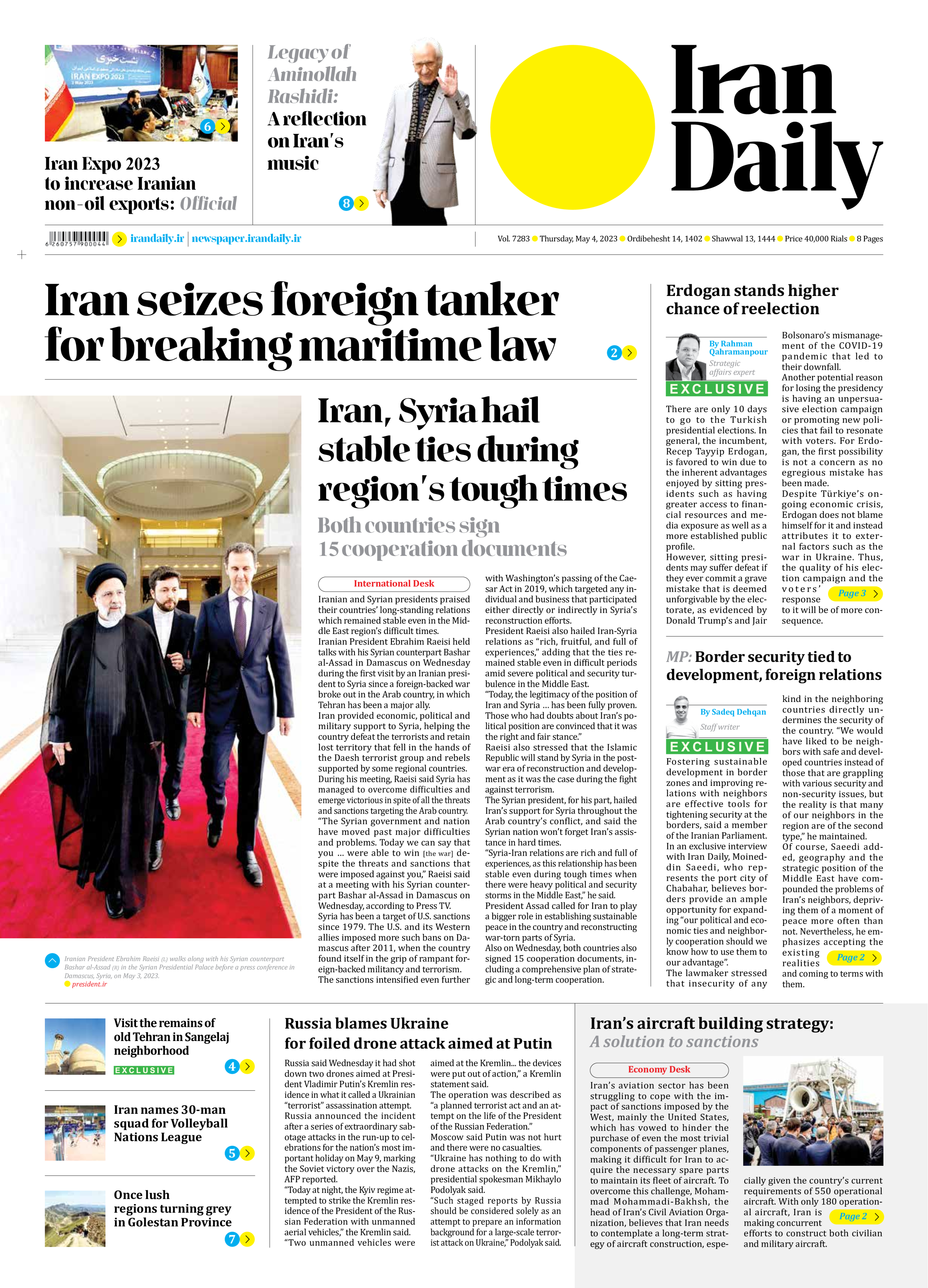
Iran’s aircraft building strategy: A solution to sanctions
Iran’s aviation sector has been struggling to cope with the impact of sanctions imposed by the West, mainly the United States, which has vowed to hinder the purchase of even the most trivial components of passenger planes, making it difficult for Iran to acquire the necessary spare parts to maintain its fleet of aircraft. To overcome this challenge, Mohammad Mohammadi-Bakhsh, the head of Iran’s Civil Aviation Organization, believes that Iran needs to contemplate a long-term strategy of aircraft construction, especially given the country’s current requirements of 550 operational aircraft. With only 180 operational aircraft, Iran is making concurrent efforts to construct both civilian and military aircraft.
Domestic airplane project
In April of the previous year, the vice president for science and technology declared the initiation of a domestic airplane project. The project aims to make a 72-seater jet and is progressing in a consortium consisting of Iran’s Ministry of Road and Urban Development, the Ministry of Defense, and knowledge-based firms.
Also on Monday, a domestically-engineered control system for the aircraft engine, developed by the MAPNA industrial group, was successfully tested in the presence of President Ebrahim Raeisi.
Why is it essential to build airplanes?
Mohammadi-Bakhsh emphasizes the policy of making indigenous planes through the utilization of domestic knowledge and strategies, stating that the capacity and expertise to build aircraft have been attained in Iran. He also points out that the West has imposed harsh sanctions on Iran that prevent any import, even down to a single bolt. This situation has made it difficult for Iran to acquire the necessary spare parts to maintain its fleet of aircraft up and running. Additionally, the current state of affairs is not to be merely defined by sanctions. It’s more akin to an asymmetric war, whereby Iran has procured passenger planes but received no spare parts. As a result, 10 of the 13 airliners bought in the wake of the 2015 nuclear deal between Iran and global powers are currently grounded.
Long-term strategy
The deputy minister of Roads and Urban Development has underscored that while Iran has been strengthened in all areas, sanctions have been either ineffective or less effective. Wherever those deficiencies have been made public, however, the West has ramped up its pressure, making it necessary to have a long-term strategy to combat shortcomings amid this asymmetric war. Nevertheless, Iranian knowledge-based companies have proven their capacity in the aviation industry as many modern airplanes are repaired and maintained within the country.
Iran’s know-how to make airplanes and the increased capacity of knowledge-based companies are all positive signs that the country is on the right path toward achieving this goal. If Iran can achieve this, it will not only reduce its dependence on imports but will also strengthen its economy and enhance its national security.







